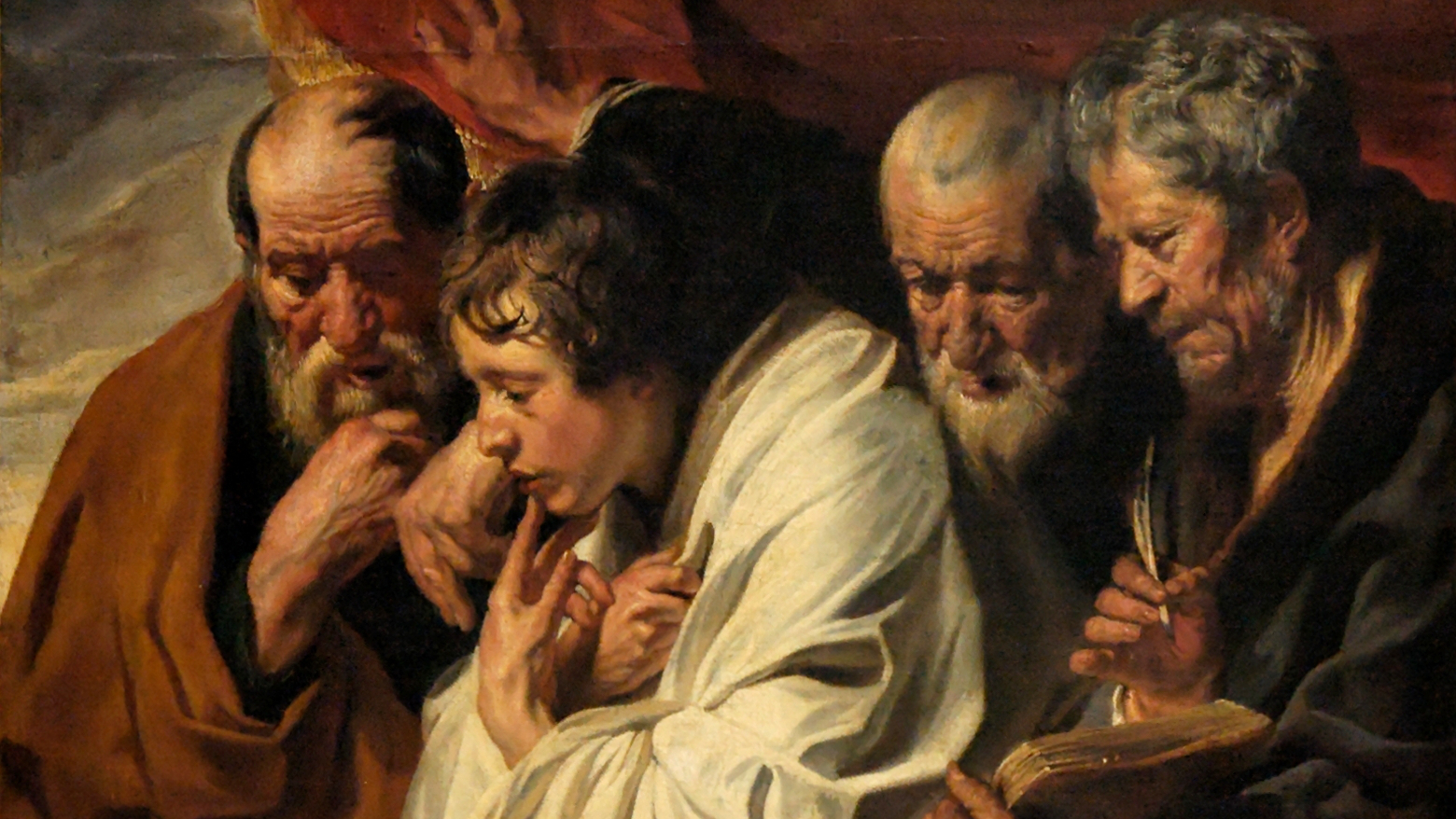You are here
What Is an Evangelist?

Ephesians 4:11
The Know
In organizing the New Testament church, multiple offices and callings were established by Jesus Christ and His Apostles. One of these callings was that of an evangelist (euangelistēs in Greek). However, this calling is only mentioned explicitly three times throughout the New Testament and Paul never directly described what it entailed.1 The first-century context behind this word, as well as modern revelation, may help clarify what an evangelist did.
What can immediately be ascertained from the New Testament is that, although only briefly mentioned, the calling of an evangelist was a critical part of Church organization. As Paul stated, Christ “gave some, apostles; and some, prophets; and some, evangelists; and some, pastors and teachers” to lead the Church (Ephesians 4:11). Based on this verse, Joseph Smith likewise declared, “We believe in the same organization that existed in the Primitive Church, namely, apostles, prophets, pastors, teachers, evangelists, and so forth” (Articles of Faith 1:6).
Another important piece of information about the meaning of the word euangelistēs comes from the Greek Septuagint translation of the Old Testament. In the Septuagint, the word evangelist is frequently used to denote, literally, a messenger bearing good news, and it can be used in a variety of contexts.2 This understanding was likely shared to some degree by the early Christian church. S. Kent Brown has noted that “the cluster of words linked to euangelistēs sends us to the proclamation of the gospel, directing us to both the act of preaching and the message itself.”3 Furthermore, as other scholars have noted, evangelists apparently played a role closely associated with the Apostles, but appear to have a more “congregational” role as a “leader of the community.” As such, “all the apostles [were] evangelists … [but] not all evangelists were apostles.”4
Joseph Smith elucidated further regarding the roles of evangelists in some of his discourses and revelations. For example, much like ancient apostles were responsible for calling new evangelists, the Lord revealed to the prophet, “It is the duty of the Twelve [Apostles], in all large branches of the church, to ordain evangelical ministers, as they shall be designated unto them by revelation” (D&C 107:39). Furthermore, “the order of this priesthood [of evangelical ministers] was confirmed to be handed down from father to son,” beginning with Adam, who blessed his children and ordained Seth to that same office (D&C 107:40–42).
Expounding on this order of the Priesthood, Joseph Smith taught in 1839 that an evangelist “is a patriarch” and that “wherever the Church of Christ is established in the earth, there should be a patriarch for the benefit of the posterity of the Saints as it was with Jacob in giving his patriarchal blessing unto his sons.”5 As such, the evangelists mentioned in the New Testament were presumably similar to patriarchs, ordained after the order first revealed to Adam.
Other ancient uses of the word euangelistēs are of special interest to Latter-day Saints and biblical scholars in attempting to reconstruct the nature of this ancient office. In fact, the only known use of the word evangelist outside of the Bible comes from an inscription from Rhodes (an island near the southwestern tip of modern-day Turkey). There, this word appears in an ancient inscription as a title for a priest as “one who proclaims oracular sayings.”6 This office apparently belonged to the high priest of Apollo, who was the Greek god of prophecy, and as such would have been a fitting title for one who would deliver specialized revelatory messages from Apollo to the people, whether collectively or individually.7 It is also possible that Paul and other leaders of the church would have been familiar with this unique calling; that is, evangelists were bearers of good news from the Lord, and could do so by offering specialized blessings, much like patriarchs do today.
Commenting on this use of the word, S. Kent Brown has observed that an evangelist “declared future events that were hidden from those in the mortal world, beyond human view. This is precisely the function of a modern patriarch — to tell individual church members the things they otherwise could not see about their own futures from God’s point of view, thus opening a window onto what that person may experience and become. Such declarations come not to congregations or to the church as a whole but to individuals one by one, person by person.”8
The Why
One of the key aspects of the Restoration of the Gospel involves the restoration of the Church organization as it was established by Jesus Christ two millennia ago, including apostles, prophets, and evangelists. As such, when we understand what these callings were anciently, it helps us appreciate the completeness of the restoration of the gospel by understanding how those same offices are at work today.
This is true for callings that even receive little explicit attention in the New Testament, such as the thrice-mentioned evangelist. But ultimately, and quite remarkably, as John W. Welch has noted, “Today we cannot be certain of the origins of the New Testament term euangelistes. But of all the meanings attributed to the word evangelist over the years, the Prophet Joseph Smith’s identification of this office as that of a patriarch who gives spiritual and prophetic blessings to individuals still comes closest to the meaning of this term in its earliest known occurrence.”9
Further Reading
John W. Welch, “Word Studies from the New Testament,” Ensign, January 1995.
S. Kent Brown, The Epistle to the Ephesians (Provo, UT: BYU Studies, 2023), 304.
- 1. See Acts 21:8, 2 Timothy 4:5, and Ephesians 4:11.
- 2. In Greek, the words for evangelist and gospel are derived from the same root and would each therefore connote “good news.” See S. Kent Brown, The Epistle to the Ephesians (Provo, UT: BYU Studies, 2023), 304.
- 3. Brown, Ephesians, 304.
- 4. Gerhard Kittel, ed., Theological Dictionary of the New Testament, 10 vols. (Grand Rapids, Mich.: Eerdmans, 1967), 2:737. Hereafter cited as TDNT.
- 5. Discourse, between circa 26 June and circa 2 July 1839, as Reported by Willard Richards, p. 22, The Joseph Smith Papers, spelling and punctuation modernized.
- 6. TDNT2:736.
- 7. See Albrecht Dietrich, “Euangelistes,” Zeitschrift für die neutestamentliche Wissenschaft 1 (1900): 337.
- 8. Brown, Ephesians, 304.
- 9. John W. Welch, “Word Studies from the New Testament,” Ensign, January 1995.
KnoWhy Citation
Related KnoWhys
Subscribe
Get the latest updates on Book of Mormon topics and research for free





